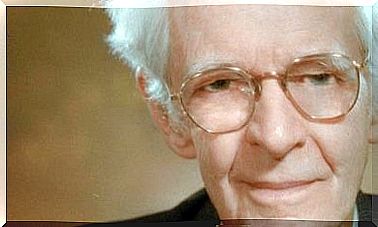Integrated Psychological Therapy For Schizophrenia

Currently, we have different psychological modalities of intervention for schizophrenia, and one of them is integrated psychological therapy.
After having gone through an irregular path, dominated by the pessimistic and organist view of psychiatry represented by Kraepelin and the view of psychoanalysis, which considered dementia a narcissistic neurosis in which transference and analytical treatment were impossible, today the panorama is different.
This meant a change in therapeutic care. If at first we focused only on treating the disability of schizophrenia or rehabilitating the deterioration, we now have therapies to treat the symptoms themselves.
As we mentioned, one of them is the integrated psychological therapy for schizophrenia by Roder and Brenner, which is the subject of this article.
Assuming that schizophrenics show deficiencies at different functional levels of conduct organization – attentional-perceptive, cognitive, microsocial and macrosocial-, that deficiencies in one level can harm the rest and that the different levels have a hierarchical relationship among themselves, Brenner and collaborators developed the penetration model .
This model served as a foundation to explain schizophrenic symptoms and to develop integrated psychological therapy (IPT), establishing that improvements at the cognitive level will lead to behavioral improvements.

Features of Integrated Psychological Therapy for Schizophrenia
It is a treatment carried out in a group, from 5 to 7 patients, and was developed specifically for this portion of the population. The aim of therapy is to improve the cognitive and social skills of schizophrenic patients.
Therapy is carried out in sessions of 30 to 60 minutes, three times a week for three months.
The type of patient considered suitable for treatment are people between 18 and 40 years old, who are not using drugs regularly (sporadic use), who live with their family, who have not spent much time in hospital and with a mild or moderate deficit front executive.
Integrated psychological therapy for schizophrenia consists of five subprograms designed to improve the cognitive dysfunctions and social and behavioral deficits characteristic of the disease.
They are hierarchically ordered subprograms, so that the first interventions focus on basic cognitive skills, the intermediate ones transform cognitive skills into verbal and social responses, and the latter train patients to solve more complex interpersonal problems.
Each subprogram is designed in such a way that as therapy progresses, the patient’s demands gradually increase. Progress ranges from simple, predictable tasks to more difficult and complex ones.
At the same time, the structure of therapy is decreasing. That is, it goes from a very structured beginning to a much more spontaneous ending.
Each sub-program, in addition, it starts with a plan emotionally material then gradually increasing their emotional charge.
Therapy Subprograms
The different subprograms of integrated psychological therapy for schizophrenia are summarized below:
- Cognitive differentiation. The focus is on attention skills and concept formation. To put this subprogram into practice, intervention techniques are used, such as the classification of files and exercises on verbal concepts.
- Social perception. The objective is the analysis of social stimuli. For this, the description of social stimuli, the interpretation of such stimuli and the discussion of the meaning of the situation are used.
- Verbal communication. Conversation skills work through verbal repetition exercises, analogues, questioning, conversations about a current topic and free conversation.
- Social skills. Training in social skill competence, a very necessary aspect for patients with schizophrenia. Role playing exercises are performed.
- Solving interpersonal problems. Patients learn to apply the problem-solving technique in the context of personal relationships. The techniques used are problem identification and analysis, cognitive restructuring and the transfer of chosen solutions to real life.

Effects of integrated psychological therapy
The data available so far cannot confirm the penetration hypothesis on which integrated psychological therapy for schizophrenia rests. Effects on cognitive variables do not consistently translate into behavioral improvements.
It is possible that modulating factors such as self-image are inhibiting the penetration model. However, other studies carried out by the authors found opposite results.
In other words, when starting with social rehabilitation, it is possible to exert a more appreciable downward effect towards basic cognitive functions, activating coping skills, developing non-deteriorated cognitive processes and improving self-concept.
A training program in leisure and professional skills has also been developed to facilitate the generalization of skills learned in therapy.
Finally, we have the treatment-oriented treatment, based on psychoeducational programs with the objective of correcting the schizophrenic patient’s ways of coping.









